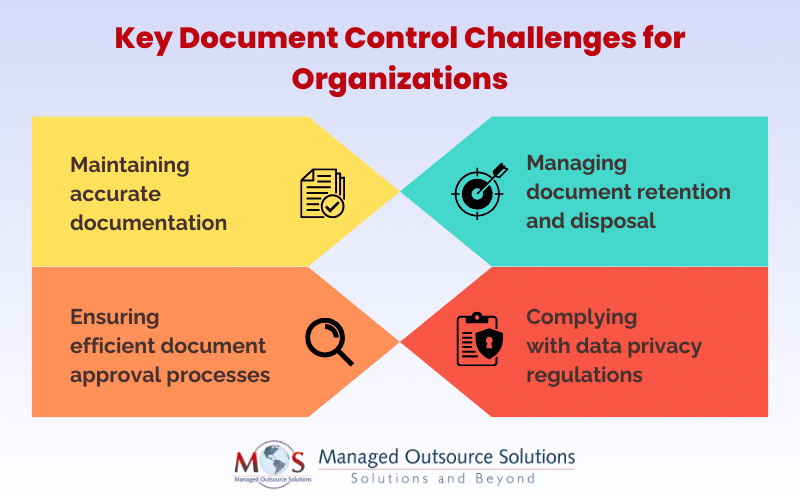Various industries have specific regulations that govern their operations. Whether small, medium, or large, companies must ensure compliance with all relevant government regulations. Those relying on traditional paper filing systems face challenges in terms of time and cost management. Converting these documents into electronic format facilitates easy organization, backup, and indexing, promoting adherence to regulatory requirements. Document scanning services have emerged as a reliable solution for businesses seeking to maintain regulatory compliance and efficient records management.
Regulatory compliance refers to the adherence to laws, rules, and regulations established by government bodies and industry authorities. HIPAA and GDPR are two prominent examples of laws and regulations that have been put in place by governments and industry to protect personal data. Maintaining proper business documents and ensuring regulatory compliance is critical for the legal and ethical operation of a business. Failure to meet these requirements can lead to legal consequences and reputational damage.
Challenges of Records Compliance
Laws and regulations are subject to change. Staying up-to-date with the latest regulations relevant to your industry can be challenging. Regulatory requirements can also be complex and difficult to interpret and comply with.
The following are the key document control challenges that organizations face:
Maintaining accurate documentation
Compliance often requires maintaining extensive documentation, such as policies, procedures, contracts, licenses, permits, and financial records. Maintaining accurate and up-to-date documentation can be a challenge, especially for businesses with large volumes of documentation. Keeping these documents accurate, current, and easily accessible can be demanding.
Managing document retention and disposal
Managing document retention and disposal is another challenge. There are many regulations that specify how long certain documents must be retained and how they should be disposed of when no longer needed. Businesses must establish proper document management processes to ensure compliance with these requirements. Managing document retention schedules and securely disposing of sensitive information can be complex and time-consuming.
Ensuring efficient document approval processes
Every organization must have an efficient and systematic process of reviewing, approving, and managing documents. Manual and paper-based methods for document approval workflows can result in delays, inefficient processes, communication breakdowns, mistakes, security concerns, and a lack of effective communication and collaboration. The absence of a systematic framework will cause compliance challenges throughout the feedback and approval procedure.
Complying with data privacy regulations
Compliance with data protection and privacy regulations, such as GDPR can be challenging. Businesses must implement appropriate measures to protect personal data, including data encryption, access controls, and data breach response plans. They must also have systems in place to track and monitor compliance activities, generate required reports, and respond to audit requests effectively.
By scanning and digitizing their documents, companies can improve document accessibility, security and management, ensure compliance with regulations, and improve overall operational efficiency.
How Scanning Documents can improve Regulatory Compliance
Converting physical records into digital format utilizing document scanning services is a common solution to address compliance concerns. Digital files can be centralized within a unified system, enabling you to improve data security, streamline operations, and reduce the risks linked to potential legal liabilities. Here’s how scanning your documents can safeguard your information and protect your business against liability issues:
Quick access and tracking
Keeping track of documents and their history is essential for compliance. Scanning paper documents and converting them into digital formats allows for faster and easier retrieval of information. Digital documents are easier to access, view, track, and manage, allowing you to provide the necessary documentation during audits or investigations.
Enhanced privacy and security
Companies store a considerable amount of sensitive data, making it crucial to implement robust data security measures to safeguard against breaches and unauthorized access. Access to digital documents can be restricted to authorized personnel, helping to ensure that only those with the proper permissions can view or edit specific files. Digital documents can be encrypted and password-protected, providing an additional layer of security to protect sensitive information. Secure document scanning solutions ensure proper protection of sensitive customer information, supporting organizational compliance.
Version control and audit trails
Document scanning software often includes version control features, ensuring that the most recent version of a document is available and changes are tracked. Digitized documents enable audit trails. With digitized documents, you can monitor and verify actions, reduce the risk of unauthorized access or alterations to records, and maintain a reliable record of document-related activities.
Data retention
Many regulations specify data retention periods. Document scanning enables implementation of record retention policies by allowing organizations to manage and dispose of documents in accordance with legal requirements.
Compliance reporting
Compliance reporting refers to the process of documenting and demonstrating adherence to relevant laws, regulations, and industry standards. Digital document management systems offer advanced search capabilities, including full-text search, metadata-based search, and keyword search, enabling you to quickly locate and retrieve the necessary documents or information. Scanned documents save time and effort when compiling information for compliance reporting.
Partnering with an experienced document scanning company to digitize your records offers numerous benefits in terms of streamlining document-related processes, enhancing security, and facilitating document retrieval. Leading companies use high quality devices to scan many documents in one go. With digital document management, you can implement comprehensive audit trails, reduce legal risks, and ensure efficient management and organization of your documents for regulatory compliance.
Transform the way you manage information with our cost-effective document digitization services!





